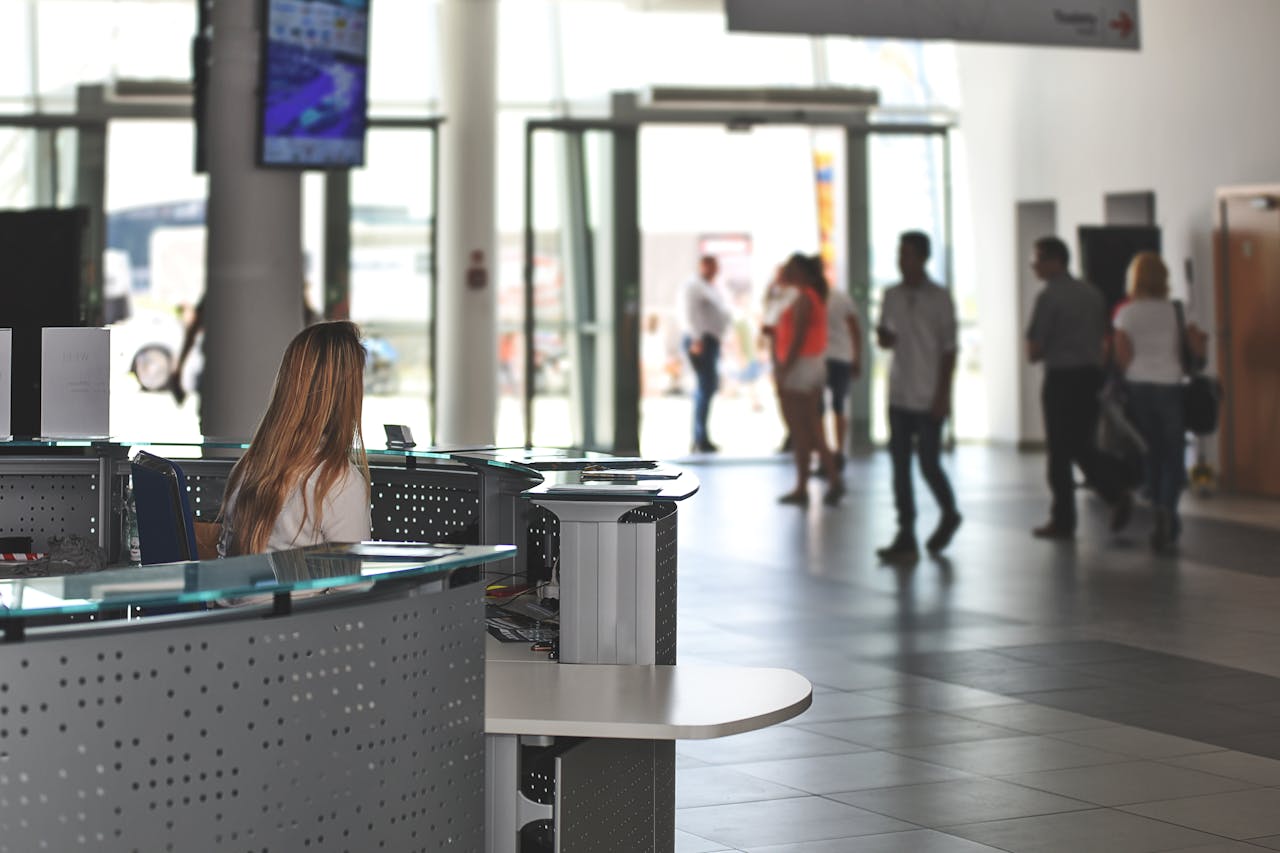The travel industry stands at a pivotal juncture where embracing digital transformation will define its resilience and future growth. The swift adoption of these technologies does not just offer a temporary fix but paves the way for sustainable success. Continue reading →
Starting in 2021, more people want to travel for leisure. Hotels and planes did better as COVID got less scary. This comeback has surged to new heights, with travel in many areas more potent than ever before. The surge does not eliminate competition. Growth follows hospitality digital transformation to create new leaders. The surge will benefit companies that quickly focus their revenue stream to enhance market targeting, become more attractive to customers, and engage focus on staff and client efficiency.


Travel places showed strength by beating COVID problems. Hotels made more money for each room than in 2019. This was an essential step in getting better. US flights also had a lot of passengers again. This showed that things were getting closer to how they were before COVID.
Even with more travel, new problems came after COVID. People worry about money now. Travelers want to spend less because things cost more, and money is uncertain. This changes how they spend and where they go.
Not having enough workers makes money worries worse. The hotel business needs more workers. This makes it hard to give good service and work well. Hotels and travel groups must find new ways to get workers and work well with fewer staff.
Work travel has not recovered to pre-COVID levels. Virtual meetings make some business trips unnecessary. The industry needs new plans to keep business travel meaningful.
Using digital technology helps companies grow and change. Major airline digital transformation initiatives streamline operations from booking to baggage handling while enhancing passenger experiences. It gives methods to deal with changes and keep growing. Using AI, learning computers, and analyzing data helps give personal services, make work easier and quickly adapt to the market.
The hospitality industry has many parts, such as running hotels, events, good food, drinks, and trips. The World Travel and Tourism Council says it gives jobs to 319 million people. It will make 100 million more jobs in ten years. Digital technology is essential for training workers and helping the industry grow.
Using face recognition and smart computers changes how guests feel in hotels. Hotels use face recognition for easy check-ins and better safety. Intelligent computer systems help guests choose the best hotels and services.
Hospitality industry leaders are now using Chatbots to efficiently help customers. They answer regular questions, help get rooms, and say what to see nearby. Data analysis watches what customers like and do. This helps with marketing and improving services. These methods ensure hotels know the latest trends and give guests what they want.
Guests now want services just for them. Digital technology lets hotels offer what each person needs. Custom emails, special comforts, and unique travel plans make things easy and each visit unforgettable. The business can make better guest connections by using personal talks.
Automating regular tasks can help hospitality venues to keep staffing levels low. Systems for managing properties and better work steps do this. The Scandic hotels have an “Easy Wi-Fi” that shows how to do this. It makes getting Wi-Fi with one click easy, making guests happy and means less work for the hotel. This slight change in digital things can change how things work.
Hotels can benefit from AI chatbots and online helpers to give help and ideas anytime. AccorHotels’ Mercure Bot is on Facebook Messenger. It provides good local tips and custom help. These bots can remember and use many place and culture info better than people.
New data helps hotels smartly use resources. Using high-tech analysis, hotels can make intelligent choices for better running and happier guests. Library hotels in North America and Europe are good examples.
Library Hotels asks people short questions after they book to know why they are traveling. This lets the hotel make the stay better for each person. For example, people at a celebration might get free champagne, while busy people could have a quiet place to work. This way of using resources not only makes guests happier but also gives them extraordinary experiences. It turns an ordinary hotel stay into something people remember and makes them want to return. COVID-19’s Effect and Recovery Path
But there are still new problems. People worry about their money. Corporate travel is still in decline from pre-COVID levels. There are not enough workers in travel jobs. The changing weather is a big worry, too. However, using digital technology can help solve these problems. Chatbots that use AI help when there are not enough workers. Computers that run themselves make things work better. Hotels that use less harmful energy make eco-friendly travelers happy. They also make good money but still help the planet.
The travel industry stands at a pivotal juncture where embracing digital transformation will define its resilience and future growth. The swift adoption of these technologies does not just offer a temporary fix but paves the way for sustainable success. As we advance, the challenge lies in how effectively these innovations are integrated into everyday operations to create a flexible, responsive, and ultimately thriving industry. What remains to be seen is how prepared the sector is to fully leverage these digital tools to their maximum potential.
More types of consensus mechanisms exist, including PoCo, PoB, PoDA, and PoA. Each excels in…
Adopting cloud computing, leveraging automation, robust cybersecurity, and collaboration are all critical elements of a…
Utilizing optimal ISP proxies facilitates global network reach while instilling the confidence associated with local…
Nutrition and hydration play essential roles in our work performance. We can plan balanced meals…
Sharing our gardening experiences creates bonds and enhances our well-being. We can exchange produce, recipes,…
Whether it’s increasing traffic, boosting credibility, targeting local customers, or gaining a competitive edge, the…